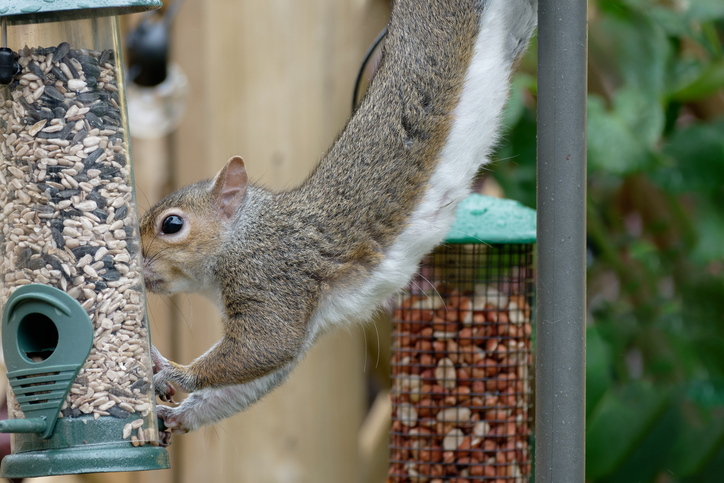Squirrels are often seen as cute and harmless creatures, but they can become significant pests when they invade homes and gardens. Their tendency to gnaw on wires, insulation, and even wooden structures can lead to costly damage and safety hazards. Effective squirrel pest mitigation strategies are essential for homeowners and property managers, and trapping plays a pivotal role in managing squirrel populations. This article will delve into the importance of trapping in squirrel pest control, explore various trapping methods, and provide insights into best practices for successful trapping.
1. Understanding Squirrel Behavior
Understanding squirrel behavior is crucial to implementing effective trapping strategies. Squirrels are diurnal creatures, meaning they are active during the day and rest at night. They are naturally curious and are known to explore their environment in search of food. Squirrels are also highly social animals, often seen in groups, which can increase the likelihood of infestations in residential areas. Knowing their habits and patterns can help identify the best times and places to set traps for maximum effectiveness.
2. Types of Traps
Various types of traps are available for squirrel control, each designed to cater to specific situations. Here are the most common types:
– Live Traps: These traps capture squirrels without harming them, allowing for relocation to a suitable habitat. Live traps come in various sizes and are typically baited with food to attract the squirrels. It’s essential to check local regulations regarding the relocation of captured squirrels to confirm compliance.
– Snap Traps: Snap traps are designed to kill squirrels instantly upon activation. They are generally considered more humane than some other methods because they aim for a quick death. Proper placement and baiting are critical for the effectiveness of snap traps.
– Electric Traps: These traps use a high-voltage shock to kill squirrels quickly and humanely. When used correctly, electric traps are safe to use indoors and pose little risk to pets and children. They require batteries or an electrical outlet, making them a convenient option for pest control.
3. Baiting Techniques
Effective baiting is crucial for successful squirrel trapping. Squirrels are attracted to various foods, and understanding their preferences can enhance trapping success. Here are some effective bait options:
– Nuts: Squirrels are particularly fond of nuts, such as peanuts, walnuts, and almonds. Using unsalted, unseasoned nuts can effectively attract squirrels to traps.
– Fruits: Fresh fruits like apples, bananas, and berries can also be effective bait. Confirm the fruits are ripe and fragrant to attract squirrels.
-Vegetables: Certain vegetables, such as corn and carrots, can serve as effective bait. Corn, in particular, is a favorite among squirrels and can quickly draw them to traps.
Properly placing the bait inside the trap is essential to engage the squirrels. Avoid over-baiting, as this may allow the squirrel to eat without triggering the trap.
4. Best Practices for Trapping
Implementing best practices can significantly improve the effectiveness of your squirrel trapping efforts. Here are some key tips to follow:
– Choose the Right Location: Place traps in areas where squirrel activity is high, such as near trees, along fence lines, or close to entry points into your home. Observing squirrel movement patterns can help determine optimal trap placement.
– Set Traps at the Right Time: Trapping is most effective in the early morning or late afternoon when squirrels are most active. Setting traps during these times can increase your chances of a successful catch.
– Regularly Check Traps: Inspect traps at least once a day to confirm that captured squirrels receive prompt attention. Live traps, in particular, can be stressful for captured squirrels, so checking them frequently is essential for their welfare.
– Handle Captured Squirrels Safely: If you’re using live traps, wear gloves when handling the trap to avoid direct contact with the squirrel. Always follow local regulations regarding the relocation of captured squirrels and make sure they are released in a suitable habitat far from residential areas.
5. Humaneness and Ethical Considerations
When dealing with squirrel pest extermination, it is essential to prioritize humane methods. Trapping can be ethical if performed correctly, with a focus on minimizing suffering. Here are some ethical considerations to keep in mind:
– Use Humane Traps: Opt for live traps or quick-kill traps designed to minimize suffering. Avoid using glue traps or other inhumane methods that can cause unnecessary pain and distress.
– Educate Yourself on Local Regulations: It is vital to understand local laws and regulations regarding squirrel trapping and relocation. Some areas have specific guidelines for managing wildlife, and compliance is essential to avoid fines or penalties.
– Consider Non-Lethal Alternatives: In some cases, non-lethal methods such as habitat modification or deterrents may be more appropriate. Implementing preventive measures can help keep squirrels at bay without resorting to trapping.
Trapping is a crucial component of effective squirrel pest control strategies. By understanding squirrel behavior, selecting the right traps, and implementing best practices, homeowners can manage squirrel populations effectively and humanely. Prioritizing ethical considerations and adhering to local regulations guarantees responsible pest management that protects both your property and the environment. With the right approach, trapping can help you maintain a peaceful and squirrel-free home.
If you’re struggling with squirrel infestations, don’t hesitate to reach out for professional help! Contact Prompt Action Pest Control today to discuss effective squirrel pest control strategies tailored to your needs. Call us at (877) 877-6678 to schedule an inspection and take the first step toward a pest-free home!














